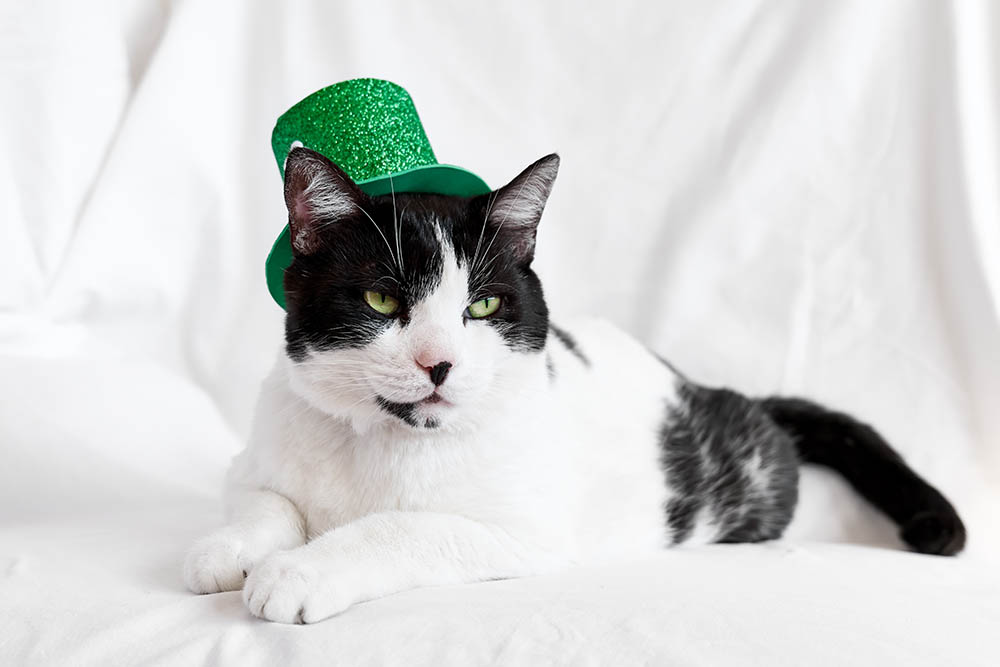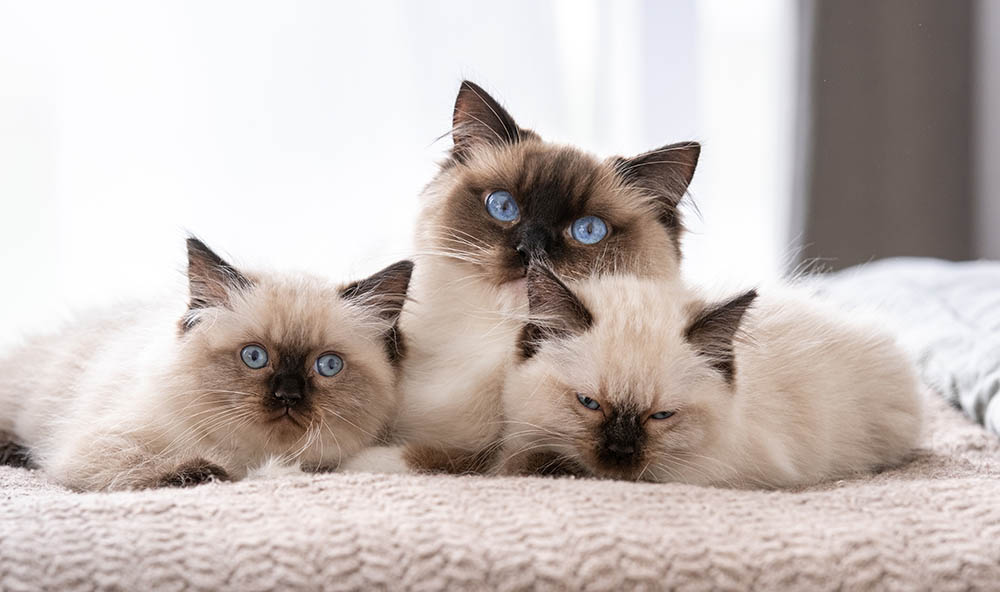Can Cats Eat Yogurt? Vet-Reviewed Benefits & FAQs

Updated on
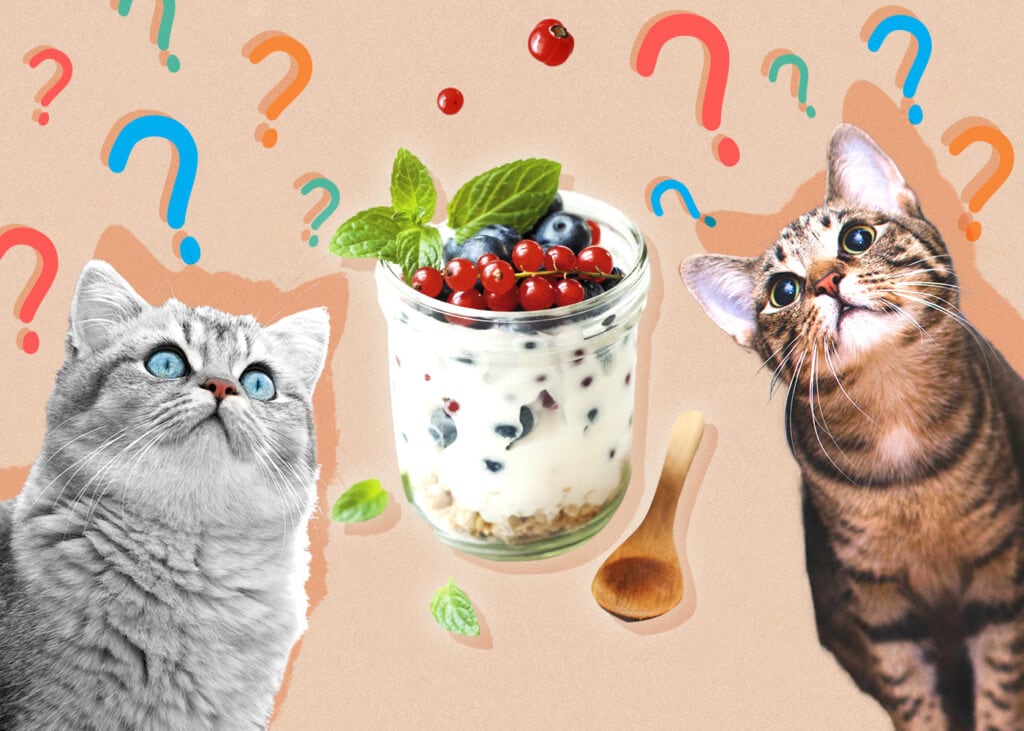
Even though we may often think of cats as enthusiastic milk drinkers, the reality is that most cats are lactose intolerant. As cats get older, they lose their ability to properly digest lactose. However, yogurt is different from other dairy products because the active cultures in it make it slightly easier to digest. This makes the answer to the question of whether or not cats can eat yogurt complicated. Yes, cats can eat small amounts of yogurt. However, many veterinarians don’t recommend it. Let’s dig a bit deeper into the relationship between cats and yogurt.
Cats and Dairy Products
The famous photo of a farmer shooting milk directly from the cow’s udder into the waiting mouths of thirsty barn cats is adorable. However, it is also misleading. Cats have long been associated with milk, and many people still think about giving their cats a saucer of milk as a treat. Unfortunately, dairy can cause extreme discomfort for adult cats.
Kittens can drink milk without problems. Their tiny bodies still produce lactase, an enzyme produced in nursing mammals’ small intestines that enables them to digest their mother’s milk. However, once they reach about 4–7 weeks of age, their lactase activity decreases and with it, their ability to digest lactose. Nature is wise, though, as this coincides with the weaning period of kittens. Even though your cat may still like the taste of milk, giving any dairy products to them after this time will most likely cause digestive problems.
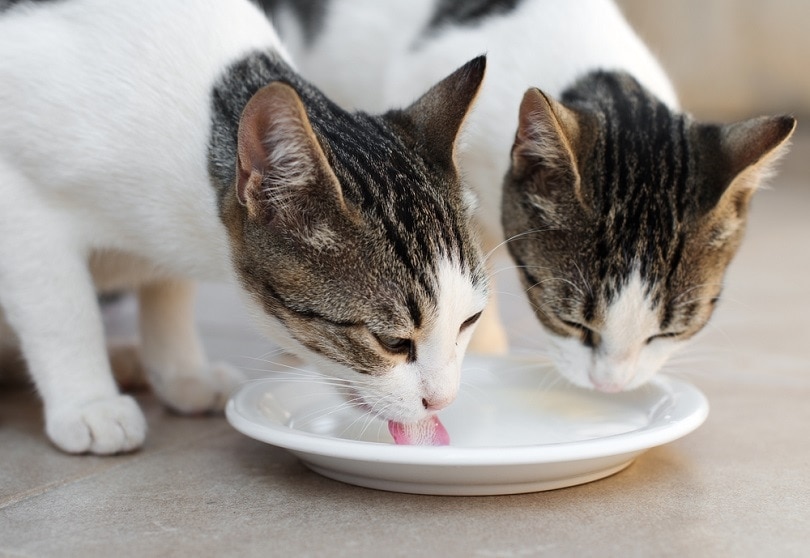
Yogurt and Cats
Yogurt is different from other dairy products because it is made by using cultures to ferment the milk. This process breaks down some of the sugars in the milk, like lactose, into smaller compounds, glucose and galactose. These compounds are easier to digest than the lactose found in regular milk. Because of this, yogurt may not cause the same digestive problems in cats that other dairy products do.
However, this doesn’t necessarily mean that it is a good idea to share yogurt with your cat. Some of the lactose will still be present in the yogurt. Greek yogurt has less lactose than regular yogurt, so some vets think that a spoonful of Greek yogurt is okay to offer to a cat. However, there is debate in the veterinary community about this, and the majority seem to agree that any potential nutritional benefits are minimal and not worth the risk of discomfort and digestive distress.
Preparing Yogurt for Cats
If you do decide to give your cat a bit of yogurt now and then, there are a few things that you need to be careful of. First, the yogurt should ideally be Greek yogurt or at the very least, be the plain and unsweetened variety of regular yogurt. Artificial flavorings can be harmful to your cat. Many yogurts are also sweetened with artificial sweeteners. These can be dangerous for cats and should never be given to them in any form.
Second, you should not give your cat more than a tiny bit of yogurt. The more they have, the greater the possibility that they will have stomach troubles afterward.
Along with the potential for digestive problems, too much yogurt, or any treat, can lead to weight gain. An overweight cat will develop more health problems throughout their lifetime than a cat that remains at a healthy weight, including an increased risk of developing heart disease, diabetes, certain cancers, and mobility problems.
Your cat does not need extra calories from foods like yogurt. High-quality cat food will provide them with the nutrition they need without the risks.
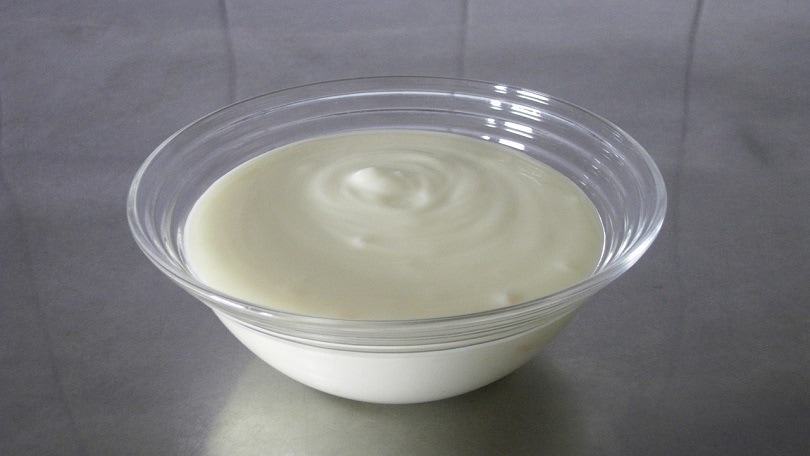
Benefits of Yogurt for Cats
If you do choose to give your cat a small amount of yogurt, they will get a small boost of probiotic bacteria, along with a few nutrients, vitamins, and minerals.
- Calcium
- Protein
- Potassium
- Phosphorus
- Choline
It is important to note that the nutritional benefit they receive from a small amount of yogurt will be minimal. Your cat is better served by getting these nutrients from their cat food.
Probiotic Supplements for Cats
While one of the most valuable benefits of feeding yogurt to your cat is the probiotic content, please keep in mind that cat-specific probiotic products are available in the market. With these products, it is easy to give the benefits of probiotics to your cats without the downsides of the lactose content and additional calories that come with the ingestion of yogurt.
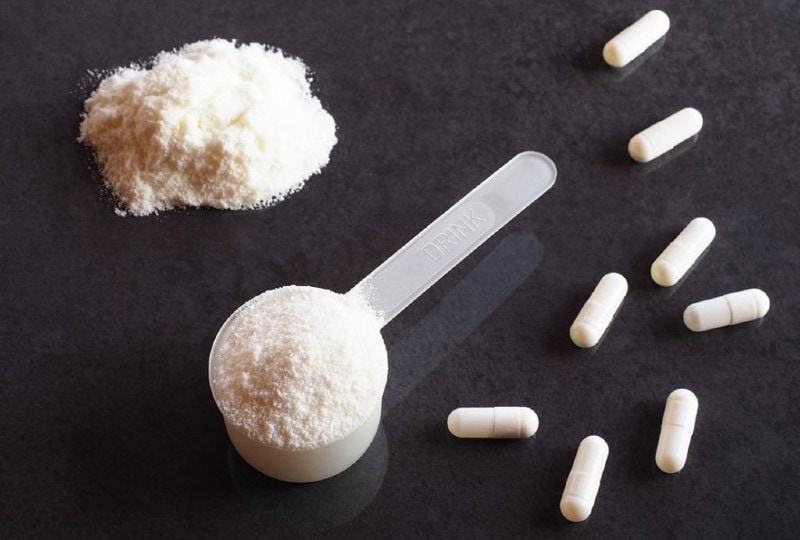
Human Foods That Cats Should Never Eat
Along with most dairy products, there are several other human foods that your cat should never eat. Many of the foods on this list are toxic to cats or can cause serious health problems.
- Onions, chives, shallots, and garlic
- Grapes and raisins
- Chocolate
- Raw meat, fish, or eggs
- Alcohol
- Products containing caffeine
- Tuna canned for humans
Final Thoughts
Even though it is probably fine for your cat to have an occasional lick of plain, unsweetened yogurt, it is not necessary for them, and the risks outweigh the benefits. After all, no one wants their cat to have an upset stomach. If you are looking into offering yogurt as a probiotic, please speak to your veterinarian beforehand, and keep in mind that cat-specific probiotic supplements are now available in the market.
Featured Image Credit: mama_mia, Shutterstock



